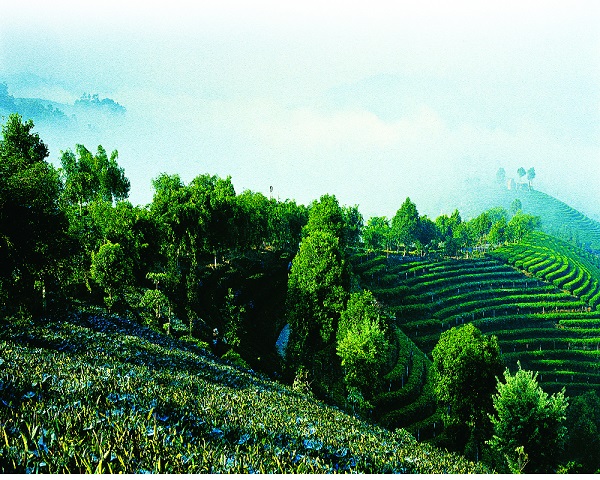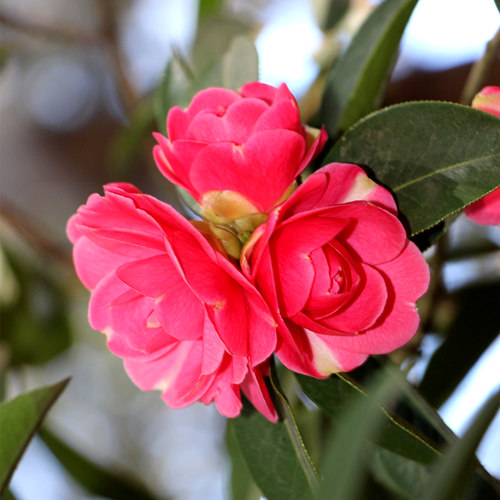
Detailed Introduction to Zhenxiong County of Zhaotong
Zhenxiong County (镇雄县) is located in the southwestern part of Zhaotong City, Yunnan Province, China. As one of the largest counties in Zhaotong, Zhenxiong is known for its rich natural resources, vibrant agricultural sector, and unique cultural heritage. The county's picturesque landscapes, combined with a history spanning several centuries, make it a fascinating place to explore. This introduction provides a detailed overview of Zhenxiong County, covering its geography, history, economy, culture, and key attractions.
Geographical Location
Zhenxiong County is situated in the northeastern part of Yunnan Province, with a total area of about 2,588 square kilometers. It is bordered by other counties such as Yanjin, Ludian, and Shuifu, as well as neighboring provinces. The county’s terrain is diverse, featuring mountains, plateaus, and valleys, with elevations ranging from 1,000 to over 2,500 meters.
The county has a subtropical highland climate, with distinct seasonal changes, including hot summers and mild winters. This favorable climate supports a wide range of agricultural activities, making Zhenxiong an important agricultural hub in the region.
History
Zhenxiong has a long history that dates back to ancient times. It was an important area for trade, especially during the Ming and Qing dynasties, when it served as a center for local commerce and agricultural exchange. Throughout its history, Zhenxiong has been home to various ethnic groups, including the Yi, Han, and Hui, each of which has contributed to the rich cultural fabric of the county.
The name "Zhenxiong" was derived from the Zhenxiong River, which runs through the county and has been an important waterway for transportation and irrigation.
Economy
The economy of Zhenxiong County is primarily based on agriculture, though the county is also seeing growth in industry and tourism. The county’s economic development is fueled by its fertile lands, abundant natural resources, and increasing industrial diversification.
1. Agriculture
Agriculture is the backbone of Zhenxiong's economy. The county’s fertile soils and favorable climate allow for the cultivation of a wide variety of crops. Major agricultural products include rice, corn, tobacco, fruits (such as peaches, apples, and grapes), and vegetables.
Zhenxiong is particularly known for its production of tobacco, which has been a key cash crop for local farmers. The county's agricultural sector also includes animal husbandry, with the raising of livestock such as pigs and cattle.
2. Industry
In addition to agriculture, Zhenxiong has developed a growing industrial sector. Key industries include food processing, construction materials, textiles, and mining. The county has abundant mineral resources, such as coal and limestone, which are important for local industries and contribute to regional economic growth.
The county government has been promoting industrialization, encouraging investments in small and medium-sized enterprises, and focusing on improving infrastructure to support industrial development.
3. Tourism
Tourism is a developing sector in Zhenxiong, thanks to its rich natural landscapes, cultural diversity, and historic sites. The county is home to scenic areas, ethnic villages, and unique cultural traditions that attract tourists seeking an authentic rural experience.
Ethnic and Cultural Heritage
Zhenxiong County is home to a variety of ethnic groups, with the Yi being the largest ethnic group in the area. The cultural diversity of the county is reflected in its customs, festivals, language, and daily life. This diversity adds to the vibrancy and uniqueness of the region.
1. Yi Culture
The Yi people have a distinct cultural identity, characterized by their unique language, clothing, music, and festivals. One of the most important festivals for the Yi people is the Torch Festival, which celebrates the harvest and involves traditional dances, music, fire rituals, and community gatherings.
Yi people in Zhenxiong are also known for their craftsmanship, particularly in the areas of embroidery, silver jewelry, and pottery. These traditional crafts are highly valued and are an integral part of the region’s cultural heritage.
2. Hui and Han Influence
The Hui people, who practice Islam, also contribute to the cultural diversity of Zhenxiong. Their culinary traditions, religious practices, and unique customs have shaped the local cultural landscape. The Eid al-Fitr festival, which marks the end of Ramadan, is celebrated by the Hui community in Zhenxiong.
The Han Chinese community in the county also contributes to the area’s cultural richness, with various traditional festivals and customs that reflect the wider influence of H



